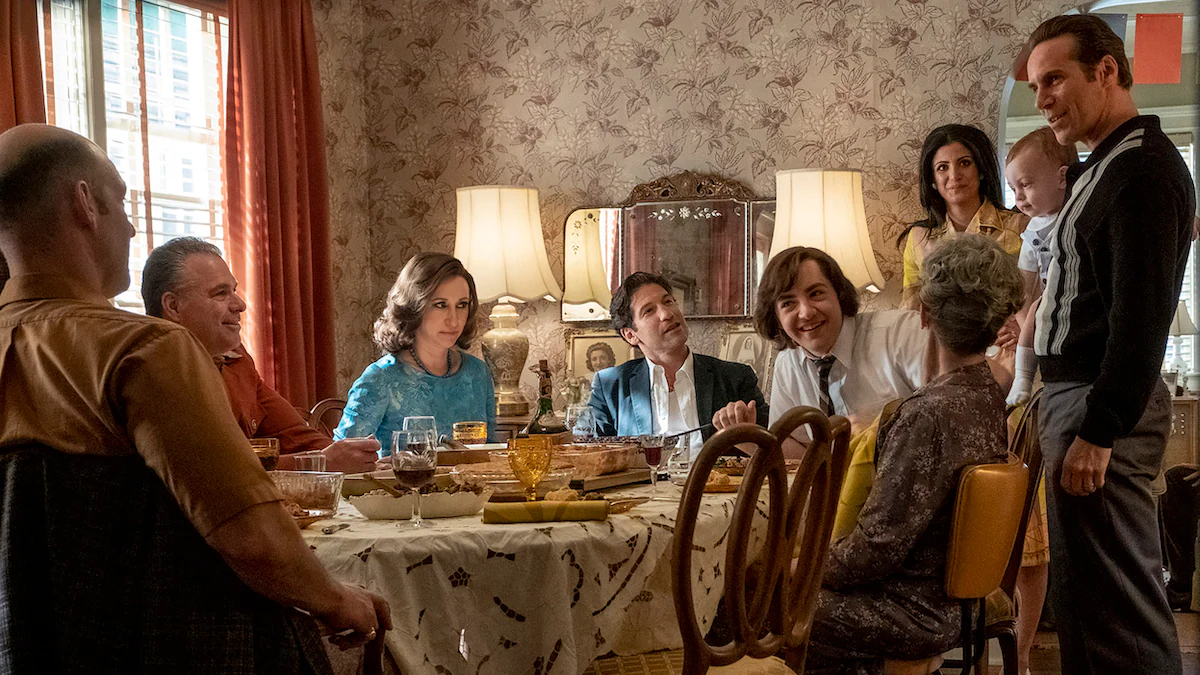General
Why TV channels rebrand…and does it work?
Every few years, we see channels rebranding themselves – a new look and feel, a new positioning, new colours and sometimes a new logo. What necessitates a rebranding in the first place and how does it work? Do results justify a rebranding?
Sohini Sen | Mumbai | November 26, 2013

A lot of viewers grew up in an age when there was only Doordarshan to watch. The number of shows was less and choices were limited. With the entry of cable television we were suddenly spoilt for choice. Cut to the present. Digitization has opened the door for hundreds of channels to make their way into our living rooms. But with numbers come the struggle to survive. And one of the survival strategies which every channel has gone back to time and again has been to rediscover itself. So, every few years, we see channels rebranding themselves – mostly a new look and feel, a new positioning, and new colours and sometimes a new logo too.

Nikhil Madhok
What is rebranding? Nikhil Madhok, Senior VP, Marketing, Star Plus, explained, “Rebranding can happen in three ways: a refreshing of the on-air packaging, a proposition change or a change in content along with positioning. This last one is the only genuine rebranding process.”
A channel’s decision to repackage its look is a popular step. Usually graphics are modernised in order to keep up with rapid changes in the industry. In recent times, Sony’s decision to change the colour of the Sony logo is one such example. This step may or may not be accompanied by a change in programming or positioning.
A channel can also decide to adopt a specific, stated brand position or refresh the one they already have. This is known as a proposition change. For example, SAB TV for years made programmes which were humorous and made for viewing with the whole family. But with their rebranding, they made sure that their philosophy and brand position came across as a family entertainment channel. Thus, they adopted the line ‘Asli mazaa sabke saath ata hain’.
A third way is to change the content in such a way that when people come to the channel, they can notice the change instantly. This is coupled with a change in positioning as well, so in most cases there will be an underlying theme in the content line-up.
Why and how of rebranding?
But why should a channel rebrand itself at all? There can be several reasons.
For Sony Pix, survey and research revealed that every other English movie channel had the same thing to say – being about Hollywood and establish itself as a channel with Hollywood credentials. A viewer in such a case would obviously get confused about which channel to choose. The decision to rebrand was a tool to differentiate itself from the pack and to tell viewers what Hollywood is about and figure out what they like about Hollywood.

Saurabh Yagnik
“We realised after a lot of consumer work that the viewer is overloaded with choices and information. Thereby, what a channel stands for is lost. Not just that. The trends also keep changing, so what was relevant yesterday may not be relevant today. In the midst of all this clutter we were trying to find relevance. When I watch a movie, I usually sample the channel and choose. Therefore, we at Pix wanted to be at the top of the mind,” said Saurabh Yagnik, Business Head, Sony Pix.
On October 27, Sony Pix decided to reinvent itself with a new logo and brand positioning. The refreshed brand identity centred on the new brand philosophy ‘Stay Amazed’. Incidentally, Sony Pix changed its identity once before to cater to the brand identity ‘Hollywood is here’. The new Sony Pix is said to be cool, and brings a wow factor and presenting things with a twist so that everyone is amazed every moment. It promises to always entice, excite and engage its viewers – be it on social media, on-ground or on television. The new logo is in Neon Green, which is eye-catching and a trend among “aspirational” youth brands. The logo has been created by MediaLuna of Argentina after careful selection from over 24 pitches in the last six months from agencies across five continents.
But Pix didn’t just change the logo and design. They changed the kind of movies they showed and how they showed it. On the day of the rebranding, the channel’s big ticket was the latest James Bond movie ‘SkyFall’. The plan is to follow it up with all the other Bond movies along with more premiers, etc. The display format also changed to a savvier sliding screen view. Small changes, with good results.
Fatigue or business decision

Sudha Natrajan
Sudha Natrajan, former CEO, Lintas Initiative Media and currently Founder-Director of The Media Café, a leading media consultancy, explained, “The fastest moving consumer goods (FMCG) in India today is media, specifically television channels. There is fatigue that sets in, logos and channel IDs, tune-ins, etc., become blind spots. It is important for rebranding and repackaging to happen periodically – to beat viewer fatigue. This could be because of a big repositioning exercise, change in strategy that the channel is adopting, or it could just be a simple case of repackaging only. If a rebranding happens with just a logo and creative change, it might not add much value to the exercise. There should be something value-added as a proposition that needs to be put forth to the viewer/consumer. A small rebranding exercise can happen more frequently but a full-fledged, comprehensive exercise tends to happen once in a long while. This also depends on what are the needs of the channel.”
On the other hand, Star Sports’ rebranding was more of a business decision. After Rupert Murdoch-owned Star Group bought out ESPN’s stake in the Star Group-ESPN JV, they decided to bring it under roof. Star India took charge of this business keeping in mind the magnitude of it all. From three different brands it was collated under one brand – Star Sports. Earlier this month, Star India unveiled six different channels – Star Sports 1, 2, 3, 4, HD1 and HD2 and starsports.com. They chose to unify it under one brand philosophy as well: ‘Believe’.
“There has to be a business logic and need transfers to a consumer’s logic for any rebranding to work. We wanted the rebranding and refresh to present Star Sports as a sports-led destination. Nowadays, consumers are consuming more than just one sports. Thus the new Star Sports would be a portfolio of different things while being neutral to all sports,” explained Sanjay Gupta, COO, Star India.
Sometimes the refresh is more of an internal refresh, without an announcement as such. NDTV Good Times decided to innovate with the programming and make the content more in tune with lifestyle consumers.

Kanishk Khanna
“We wanted to define what lifestyle was when we launched. Now we realise we need to innovate a bit more to stay in tandem with the changes and therefore we have taken another leap. Rebranding for any channel has to relevant. These are dictated by the changes in how people consume content, and not just as a mechanical exercise to be done every few years,” pointed out Kanishk Khanna, Assistant VP, Marketing Services, NDTV Lifestyle.
Keeping that in mind, NDTV has launched a new mini-series – ‘John Abraham: A Simple Life’ – which spans over four episodes and chronicles the private and public life of the actor and model. This will be followed by a number of such innovative programming.
About the new shows, Khanna said, “We have had our ear to the ground and we have been trying to figure out what our consumers want to see. We realised that it time to innovate. So you will see content that is in-tune with lifestyle consumers spanning genres like adventure, reality, international shows, etc.”
The changes, the results…
So, does rebranding actually work? Or is it just a short-term buzz? For some, especially when it is done keeping in mind the consumer’s choice, it does show results.
When Star Plus rebranded itself in 2010 under the philosophy “Rishta Wohi, Soch Nayi”, it brought about a sea of change in the programming. After doing a particular kind of content such as ‘KBC’, ‘Kyunki Saans Bhi Kabhi Bahu Thi’ And ‘Kahaani Ghar Ghar Ki’, the channel decided to change its look and feel after almost a decade.
“People want to see what is happening in society. We met consumer researchers, outsiders and debaters to understand the change. We realised that many Indians were striving towards change and progress. Our philosophy of ‘Rishta Wohi, Soch Nayi’ was decided after seeing that as society progresses, the relationship within families do not change. But Star Plus helps you to view those relationships in a new perspective. At that time women’s issues were foremost in our minds. And most of our programming reflected that,” pointed out Madhok.
Star Plus had launched a slew of shows around the relaunch, spreading the launch over several weeks so as to not bombard the viewer with new content. Among the mentionable ones are ‘Pratigya’, ‘Sasural Genda Phool’, ‘Saathiya’ and ‘Tere Liye’. Changes in the content of the existing shows were also done to reflect the change in the outlook.
This seemed to have worked for them as Star Plus, at the peak of the relaunch, had the highest GRP of 423, which was a 150-point lead over the second GEC, Colors.
To illustrate it further, Skyfall’s premier on Sony Pix earned them 108 TVTs, beating the premiere of ‘Life of Pi’ (on the same day, on Star Movies). Before the rebranding, Sony Pix was the No. 2 channel with relative channel share of 18%, according to TAM data. Even though in 2010 (Week 48) it had reached an all-time high of 24.9%, the ‘Skyfall’ movie along with the relaunch took Sony Pix’s relative channel share to 25.4% (Week 44, TAM 2013).
Marketing a rebranding
Was it just the relaunch or rebranding that led to the higher numbers for both these channels? Or did they have to use smart marketing techniques to achieve this? Industry experts believe that like any launch, a TV channel rebranding also has to be promoted properly for it to be effective.

Santosh Desai
“Marketing serves a two-way purpose. One is to let people know that these are the changes which are taking place, and the second is to inform the people within the channel. It is an act of compressed communication. A channel when promoting this change is basically trying to say, ‘Look, you put me in the X slot because you thought that is what I stand for. But I stand for more than X, so remember me as Y.’ One needs to keep in mind that a channel is after all a sum of its programmes. It is important to have new content as well as dress up the whole package. Rebranding cannot just be an empty packaging; it has to be a new idea. And one must let the world know of this idea,” said brand specialist Santosh Desai, MD & CEO of Futurebrands.
Zee’s recent marketing activity centred round its new theme of ‘Vasudeva Kutumbakam’ is an example to keep in mind. The Zee Group launched the TVC made by Scarecrow recently. The company’s brand positioning reinforces its vision to welcome the entire world to be a part of the Zee Family, which the brand film depicts in a unique and creative manner. The film reflects the essence of ZEE’s brand image, conveying that it has been a cultural ambassador of India to millions of viewers across the globe for more than two decades. The 360-degree rollout of the film will be aired on all ZEE channels, social media platforms, the newly launched corporate website and other key on-ground properties. This will ensure that the film reaches all key internal and external stakeholders of ZEE.

Akash Chawla
“To rebrand is to be in tune with the market conditions and not be left behind. And it is not a onetime activity. We must consistently make it resonate so that the positioning is correct. We have always made sure that the whole nation is part of the Zee family – and we have promoted it by inviting people from different regions for our Zee Cine Awards. Our brand promise for long has been ‘Ummeed’. And if our shows and activities are not connected to this philosophy, we don’t see any point in doing it. We always had shows like ‘Betiyan’, ‘Agle janam…’ and reality shows like ‘Saregama’. We spoke about giving people a chance and some hope. We realised that we had already had the philosophy in place; so we decided to go ahead and channel all communication through this place,” said Zee Marketing Head, National Channels, Akash Chawla.

Ashish Bhasin
Does rebranding work in the long run? Is it really important for brands to try this out? Or can it be avoided? Ashish Bhasin, Chairman India & CEO South East Asia, Aegis Group, averred, “It is important to keep up with the times. Not just for TV channels but for any brand. But it isn’t always about showing something new or taking up a new brand philosophy. Sometimes it is to bring a whole group under a bigger family, to consolidate a bouquet of channels. But just by changing the logo I won’t call it rebranding. It is perhaps at best just one aspect of it. There is a broader idea upon which rebranding is pivoted on. At the same time, we must remember that it is an expensive process. If rebranding is done just for a tinkering of the logo, without actually reflecting what the audience wants to see, it will not work in the long run. Digitization has given viewers more choice to select what they want to pay for and watch. And with more progress on the digitization front, we will see more and more TV channels rebranding themselves.”
As it appears, we haven’t seen the last of rebranding of TV channels. The reasons for a revamp are often strong, driven by multiple factors, the strongest perhaps being to remain top of mind among viewers armed with a remote in their hands.
Sohini.Sen@BestMediaInfo.com
You may like
-


Italian Drama Just Doesn’t Work on Any Level
-


Seth Rogen Has No Plans to Work With James Franco Again
-


Woody Allen Blasts ‘Foolish’ Actors Who Won’t Work With Him
-


Pixar ‘Thinks of Our Work as Indie Films’
-


NFL Cheerleader Doc ‘A Woman’s Work’ Acquired by 1091
-


Daisy Ridley says she struggled to search out work after Star Wars
Gary Marsh to Exit as Disney Branded Television President,
‘The Many Saints of Newark’ Magical and Burdensome, Reviews



‘Shang-Chi’ Adds $21 Million as Box Office Slows Down



‘The Eyes of Tammy Faye,’ ‘The Card Counter’ Revive Indie



‘Trust Me, You Don’t Want This’
Trending
-



 Movies News6 years ago
Movies News6 years agoVenom struggle scene footage with out CGI is sure to make you giggle
-



 Movies News4 years ago
Movies News4 years ago‘The Eyes of Tammy Faye,’ ‘The Card Counter’ Revive Indie
-



 Movies News4 years ago
Movies News4 years ago‘Shang-Chi’ Adds $21 Million as Box Office Slows Down
-



 Movies News4 years ago
Movies News4 years ago‘The Many Saints of Newark’ Magical and Burdensome, Reviews




